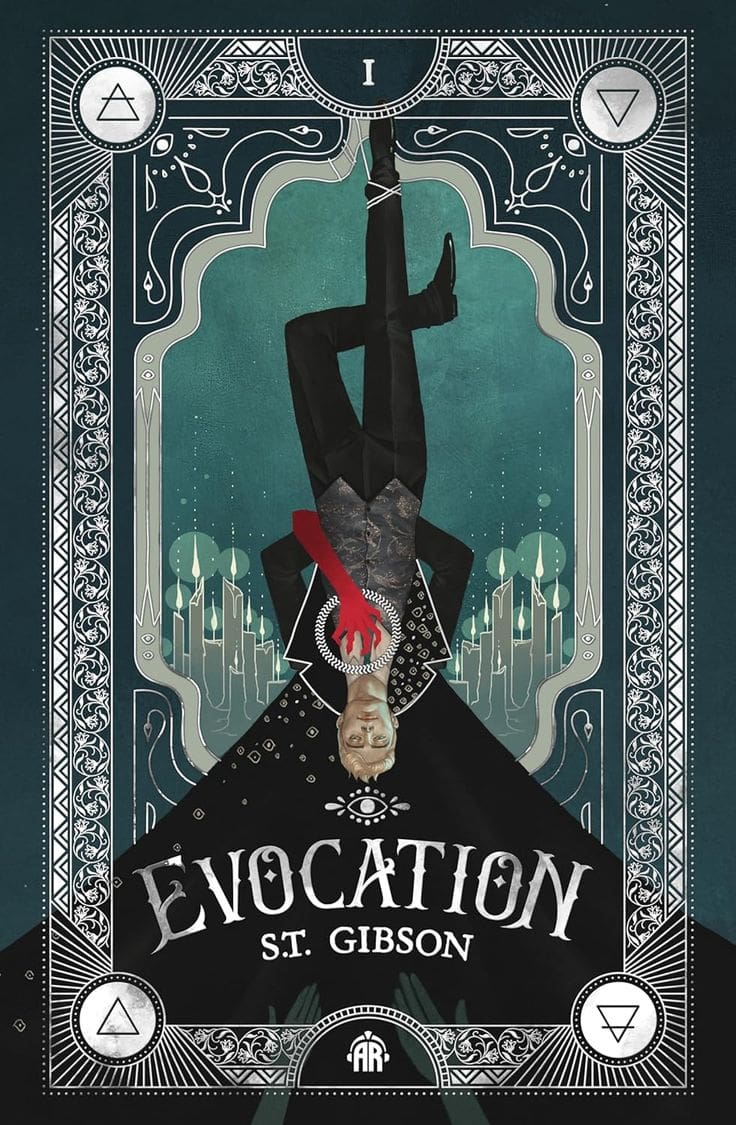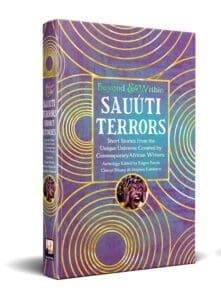
Review: Evocation by S.T. Gibson
Synopsis
When a family curse threatens the life of David, a medium, he will turn to the only person he’s ever trusted, his sorcerer ex-boyfriend, Rhys—which means he will have to open his heart to Moira, Rhys’s astrologer wife.
Review
File this immediately under urban romantasy and strap in because, baby, there’s going to be some serious hormones flying. Evocation is a curious read, make no mistake.
Gibson girds our loins fairly early on in this one. David, possessed by a demon at a seance gone wrong, reaches out to his ex, Rhys, the only man David believes can help him. Rhys, as it happens, is vying with David to be elected high priest of the secret sect. Talk of the sect is that these two guys were head over heels but their relationship was a fiery mess that left them splintered and bitter.
With me so far?
Well, don’t get muddled because Moira’s in the mix too. See, Rhys married Moira, a gifted astrologist, who knows Rhys’ ex only as an asshole prosecution lawyer recovering from a drink problem. Here lies the real crux of the novel, will David and Rhys get back together at Moira’s expense, are the boys never going to be back in town, or will a new relationship emerge that includes Moria as well?
Scry Me A River
… sorry, had to get that pun in there. Our tarot-familiar trio of amorous antagonists caress their way through the arcane secret societal scene of Boston, MA. Gibson gives this sect a satisfying oldy worldy feel. It’s very much a fuddy duddy Faustian social club with not a woman to be seen. Although key to Rhys’ motivations, the society and the demonic possession plot is very much second fiddle to the will they or won’t they plot of David and Rhys getting together.
Moira, it has to be said, has the patience of an absolute saint. There were moments where I wanted to reach into the pages and give Rhys’ head a shake. I struggled to shift my interpretation of this guy having his cake and eating it with David and Moira both. I was unsure whether I’m meant to root for these central characters or want to bash their heads together like a Newton’s cradle. I flitted between both as the book drew on.
The characters initially come together as a favour to David. His demonic possession is the result of an ancient family curse, so he hooks Rhys and Moira in with promises of an arcane library and, in Moira’s case, psychic training to block out the visions of dead people who interact with her day to day. This was the part of the book I enjoyed the most. It’s pure Hayley Joel Osment I see dead people energy and I love it.
Unlike Hayley Joel, Moira, David and Rhys each have their own power and influence in their own right, and when Gibson flexes these writing muscles it gives us some great scenes of power. Moira comes from a family steeped in magic, David is ever infernally schmoozing and charming, and Rhys summons a demon early doors. It’s all fun and intricately-worked and when they’re on song like this the characters are great.
Of course, the trio are not only battling demons of the infernal variety but the inner kind too. The book is flippant when it needs to be but doesn’t skirt around showing characters struggling. As time progresses, the stronger the bond and the more vulnerability is on display. It’s an excellent way to pay attention to the elements of addiction and abuse without making this an unnecessarily unpleasant book to read.
Moira, again with the utmost patience of a saint, battles the slow realisation that David and Rhys aren’t ever going to work as just friends. It leads to a page chewing experience in that we just need to know what’s going to happen. Will the marriage fail? Can Moira fit? These are all the questions that frequently circled in my mind as I read, albeit along with Why isn’t anyone doing anything more about the fact David is possessed?
Final Thoughts
Ultimately Evocation is a steady read but its arcane setting fades in and out. I wanted more from David’s family curse and its origins than what was included in the final book. I felt underwhelmed that more focus was on the character relationships at the expense of them navigating the arcane society. I needed more seances and spells throughout and not brought in mainly at the end when the demonic shit hits the fan – which seemed avoidable had they all not dilly dallied.
Is this my own fault? Was going in with expectations of battling demonic possession and exploring the dark arts of Boston wrong, when instead the book examines polyamory and politics? Perhaps this isn’t a book for me then, but rather a book for you?







Leave a Reply